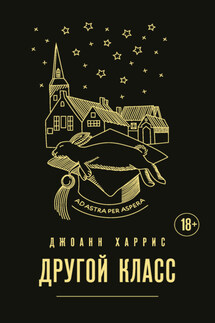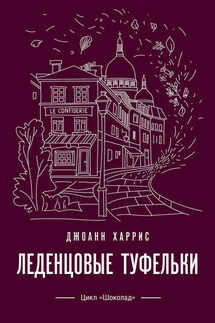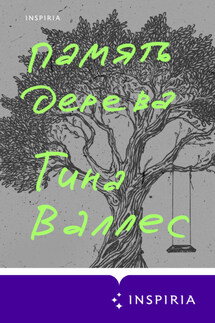Five Quarters of the Orange / Пять четвертинок апельсина - страница 46
I knew it would work again.
I waited until Wednesday evening. This time I hid the bag in the spill tray under the stove, where the heat would release the vapor the quickest. Sure enough, Mother was soon rubbing her temple as she worked at the stove, snapping sharply at me if I was late in bringing her flour or wood, scolding-mind you don’t chip my good plates, girl! – and sniffing the air with that animal look of confusion and distress. I closed the kitchen door for maximum effect, and the scent of orange invaded the room once again. I hid the bag in her pillow as before-the pieces of orange peel were crisp by then, blackened by the heat of the stove, and I felt sure that this would be the last time I used the orange bag-pushing it into the pillow beneath the striped slip.
Dinner was burnt.
No one dared mention it, though, and my mother fingered the black brittle lace of her charred pancakes and touched her temple over and over until I was sure I would scream. This time she did not ask whether we had brought oranges into the house, though I could tell she wanted to. She just touched and crumbled and fingered and fidgeted, sometimes breaking the silence with a fierce exclamation of rage at some trivial infringement of the house rules.
“Reine-Claude! Bread on the breadboard! I don’t want you getting crumbs on my clean floor!”
Her voice was waspish, exasperated. I cut a slice of bread, deliberately turning the bread over onto the breadboard so that the flat underside was uppermost. For some reason this always enraged Mother, as did my habit of cutting off the crusty piece from either end of the loaf and discarding the middle section.
“Framboise! Turn that bread over!” She touched her head again, fleetingly, as if checking it was still there. “How many times have I told you about-”
Then she froze midsentence, head on one side, mouth open.
She stayed that way for thirty seconds or so, staring at nothing with the face of a slow pupil trying to remember Pythagoras’s theorem or the rule of the ablative absolute. Her eyes were glassy-green and blank as winter ice. We looked at one another in silence, watching her as the seconds passed. Then she moved again, a brusque and typical gesture of irritation, and began to clear the dishes even though we were only halfway through the meal. No one mentioned that, either.
The next day, as I had predicted, she kept to her bed, and we went to Angers as before. Not to the pictures this time; instead we loitered in the streets, Cassis ostentatiously smoking one of his cigarettes, and settled on the terrasse of a town-center café, Le Chat Rouget. Reinette and I ordered diabolo-menthe, and Cassis began to order pastis, changing meekly to panaché beneath the supercilious gaze of the waiter.
Reine drank carefully, trying not to smear her lipstick. She seemed nervous, head ticking from side to side as if watching out for something.
“Who are we waiting for?” I inquired. “Your Germans?”
Cassis glared at me.
“Tell everyone, won’t you, you idiot!” he snapped. He lowered his voice. “We sometimes meet here,” he explained. “You can pass messages. No one notices. We trade information.”
“What kind of information?”
Cassis made a sound of derision.
“Anything,” he said impatiently. “People with radios. Black market. Traffickers. Resistance.”
He gave this last word a heavy emphasis, lowering his voice still further.











